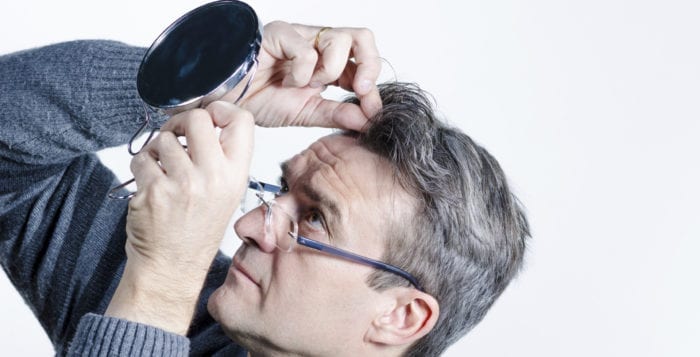By Daniel Dunaief

From birth, hair has been a signal. I had hair when I was born, which probably doesn’t come as too much of a surprise to people who have known me for years.
When I was young, my haircutter used to imagine becoming wealthy by figuring out what made my hair grow so rapidly.
For those without hair, this isn’t a boast; it’s a part of a genetic heritage that cuts both ways. My hair, as it turns out, is also thick and fast growing on my eyebrows or, as people have preferred to say, eyebrow. The space between my eyebrows is just as eager to grow hair as the area just above my eyes.
In college, I tried to grow my hair longer to see how I’d look with shoulder-length hair. That was a failed experiment as my hair grew out instead of down, turning it into a heavy tangle of thick hair.
When I met my wife, I convinced her that I couldn’t disconnect the hair between my eyebrows, or I would be like Sampson and loose my strength. Amused as she was by the story, she let it slide. The afternoon of our wedding, she was stunned to see me with two eyebrows. She wanted to know what had happened and, more importantly, how I was still standing?
I told her that I went for a professional shave so that my usual facial shadow wouldn’t appear during the wedding. While I had my eyes closed, the barber removed the hair above my nose with a quick wrist flick.
Fortunately, my wife didn’t ask for ongoing removal of that hair when it returned.
As I’ve gotten older, hair has emerged from unwelcome places, making appearances from my ears and nose. Who needs hair there — and how could Charles Darwin possibly explain the presence of such unwelcome hair? Does the ear hair announce my advancing age and lower social value?
That brings us to today. As I was maneuvering through the usual deep thoughts, resolutions and promises for the start of the new year, an errant and unwanted fellow emerged from my nose. He was clearly long enough to attract attention, but what was especially surprising about “Jedediah” wasn’t just that he was long or that he seemed to rappel out of my nose. It was his color that offered such an unwelcome but realistic signal — Jedediah was gray.
Ugh! Who wants or needs a gray nose hair, not only offering the world a clue that my hair growth was out of control, but that I’m also so much older that even my nose hairs have started to show signs of aging? Do people dye their nose hairs?
Should I pluck him, trim him or wear him with pride, hoping that he distracts people from the progressively bushier pile of hair pouring out of my ears?
Wouldn’t a rugged individualist defy convention and wear the years and the hair growth with pride, despite the lack of magazine covers with contemporary studs like Hugh Jackman with hair coming out of their noses? If Hugh made gray nose hair fashionable, would I feel less self-conscious about Jedediah?
Poor Jedediah, who worked so hard to emerge from the nose cave, suffered the same fate as the errant hairs that grew out of my ears. He reluctantly left the warm comfort of my nose and was discarded into the trash.
While hair may tell a story about each person, Jedidiah will no longer be sharing mine, except for readers of this column.











